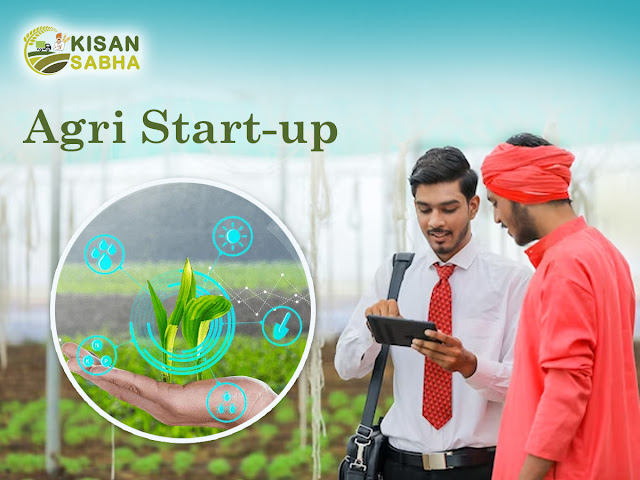The agricultural sector has seen a radical change recently as inventive entrepreneurs appear to take on long-standing problems and alter how we generate food. The groundbreaking businesses, often known as agricultural startups or agri start-ups, are utilizing innovative technologies and business models to transform farming techniques, increase sustainability, and improve global food security.
The Growth of
Agriculture Start-Ups:
The development of agriculture startups can be attributed to an increase in public awareness of the
critical problems that traditional farming practices confront. Entrepreneurs,
scientists, and investors have joined forces in this dynamic industry as a
result of population expansion, climate change, resource constraints, and the need
for improved efficiency. The startups are getting interest from seasoned experts
looking to have a good influence on the economy and society in addition to
fresh talent.
Embracing Technology:
Startups in the
agriculture industry are known for their willingness to adoption of technology.
Farmers can obtain real-time information on their crops, the health of their
soil, and the weather all because of sensors, drones, and satellite photography.
To optimize
irrigation, pest control, and fertilizer management, artificial intelligence, and machine learning algorithms examine this data. The technologically advanced
solutions help to cut costs, increase agricultural yields, and minimize waste.
Farming Techniques and
Controlled Environment:
The idea of vertical farming
and controlled environment agriculture are two of the most well-known
technologies pioneered by agriculture companies. The startups can generate food
all year long, regardless of the weather outside, by growing crops in stacked
layers within regulated indoor environments. This technique is a sustainable
replacement for conventional farming because it not only conserves water and
space but also lessens the need for pesticides and transportation.
Agri-Tech Marketplace:
Agriculture companies
have developed creative marketplaces that link farmers directly with consumers,
food processors, and retailers as well as to technological developments on the
field. By eliminating middlemen, digital platforms save money, guarantee fair
prices for farmers, and give customers access to fresh, traceable products. The
agri-tech marketplaces support transparency, improve regional food systems, and
promote environmentally friendly consumption.
Challenges and Future Prospects:
Entrepreneurs in
agriculture offer good solutions, nevertheless, they are not without
challenges. Scaling up new businesses is difficult and expensive due to
resistance from existing farming communities that are accustomed to using
traditional methods. Further, it could be challenging for businesses to grow
due to government constraints and market competition.
However, agricultural
businesses have a significant potential impact. By promoting increased output,
sustainability, and efficiency, they have the potential to impact farming's
future and, ultimately, how the world is fed.
In conclusion, the
traditional farming industry is changing because of new agricultural
entrepreneurs. The programs' unwavering commitment to leveraging technology,
promoting sustainability, and ensuring food security is creating a
brighter and more prosperous future for agriculture and society as a whole. As
they continue to innovate and gain speed, their revolutionary effect will make
a lasting impression on the global agricultural environment.

.jpg)
.jpg)


No comments:
Post a Comment